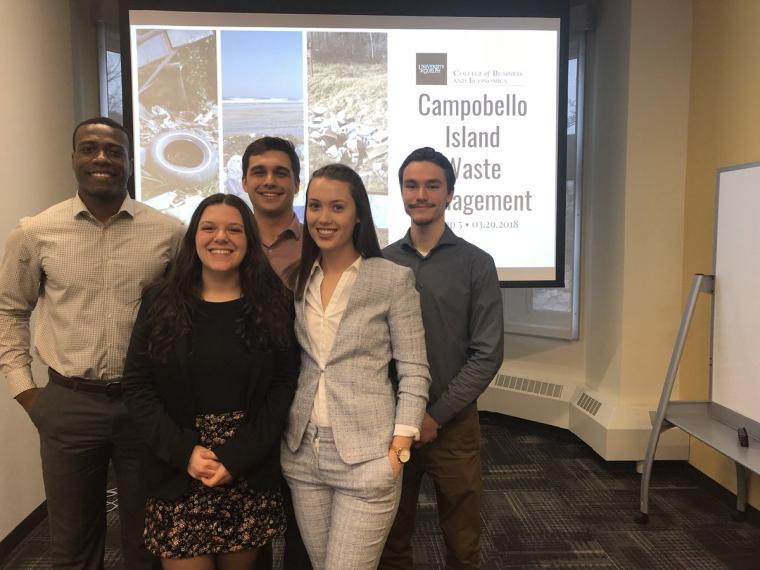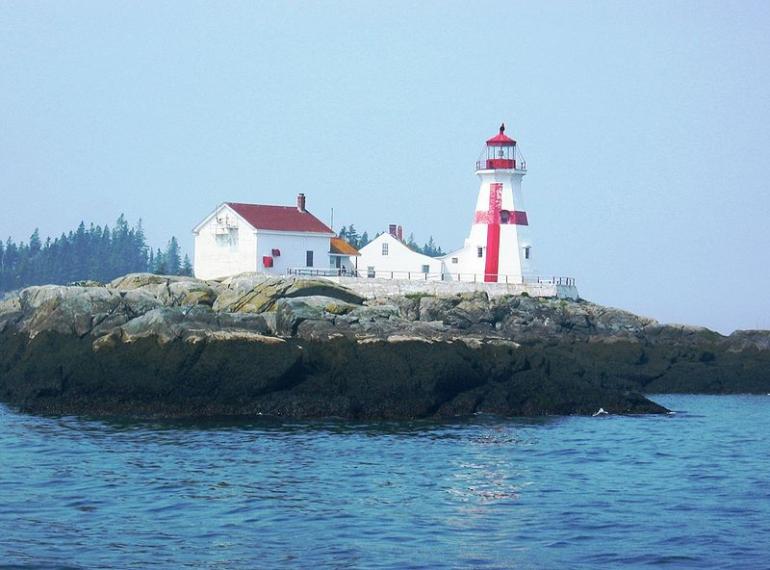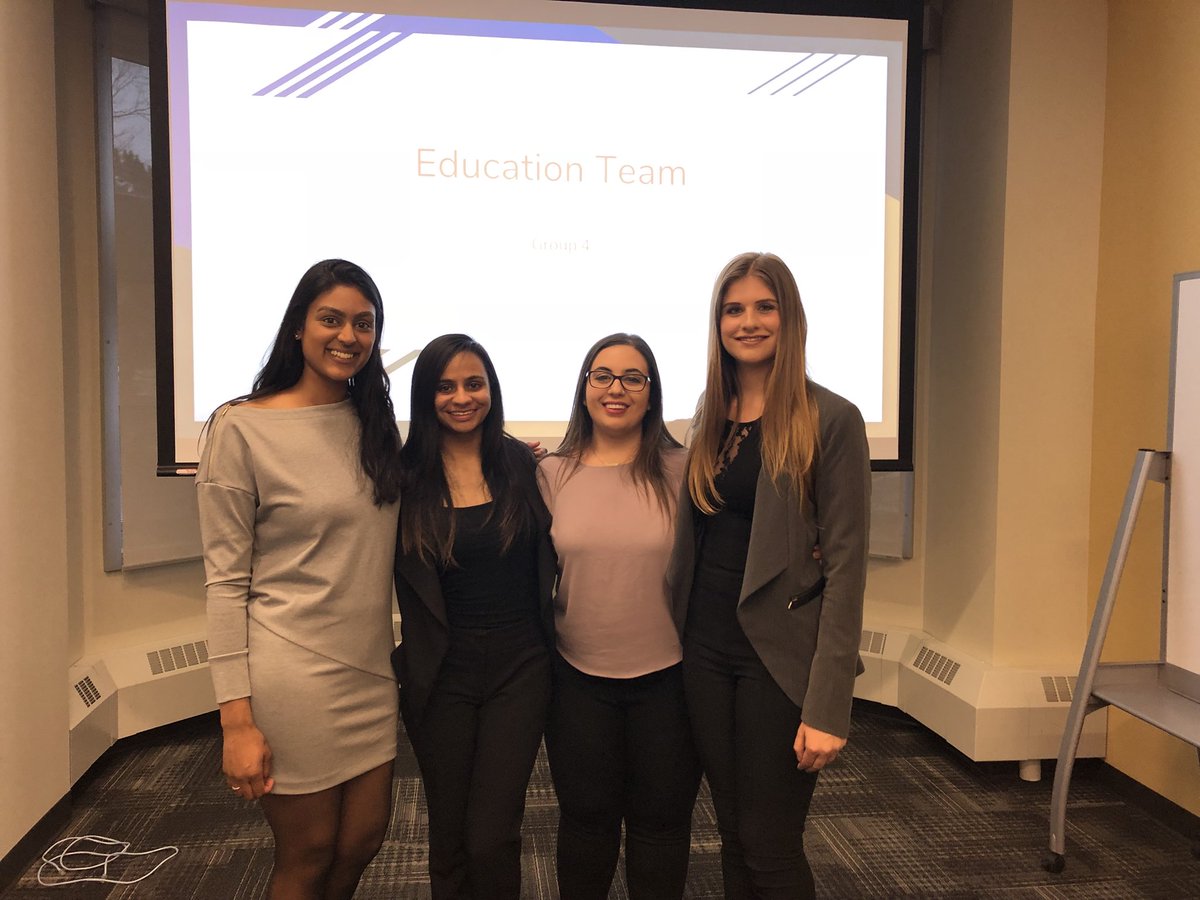Connecting communities: BComm students aim to improve small maritime community

A new business consulting course at the University of Guelph is taking learning outside the classroom to help the people of Campobello Island, New Brunswick, through community engagement and experiential learning.
One of the biggest issues facing the community of about 1,200 people is its geographic isolation. The island is accessible by ferry only four months of the year. To get there by land, visitors need to cross a bridge from Maine to the island.
“Isolation breeds certain types of problems,” says Ruben Burga, an instructor in the College of Business and Economics, who is co-teaching a pilot business consulting course with integrative biology professor Shoshanah Jacobs, based in the College of Biological Science. The course, run by the Centre for Business and Student Enterprise (CBaSE), gives students the opportunity to apply their in-class learning to real-life situations.

Unemployment, education, food security and waste management were some of the issues mayor Stephen Smart shared with students during his visit to U of G. None of these issues are unique to Campobello Island, but can be found elsewhere Canada. “It all comes down to this is an isolated Canadian community,” says Jacobs.
“I am hopeful that the Campobello Island and University of Guelph partnership will provide the isolated community with a positive sense of belonging to the rest of Canada,” Chloe Spear, BComm student.
Building relationships with these communities will be an ongoing focus for the course, she adds, because the challenges faced by one community are often shared by others.
Undergraduate students Jackson Boyle, Meruna Ranjan and Chloe Spear are analyzing the socioeconomic conditions of Campobello Island and developing strategies to address them. In April 2018, the students will accompany their instructors to Campobello Island to speak with community members and gain first-hand experience of what it’s like to live there.
Boyle says he was inspired to take the course because of the opportunity it provided to use his skills to create long-term, sustainable solutions. “It would be great to be able to come back to the community after a couple of years and see our efforts were the start of something much bigger,” he says.
Using research to help a community appealed to Ranjan. “Through the extensive research that my group and I have already done, we can see that the island has a lot to offer with the right support,” she says.
Spear adds that she is looking forward to helping the community maximize its resources in a sustainable way. “I am hopeful that the Campobello Island and University of Guelph partnership will provide the isolated community with a positive sense of belonging to the rest of Canada,” she says.
The students will focus on two main themes: land and resource use, and education. During their two-week stay on Campobello Island, they will meet with community members, local government and the business sector. Prior to the students’ visit, Smart met with them at U of G.
“Were we ever delighted by his level of openness and engagement with our students,” says Jacobs of the mayor. “He gave Campobello Island a real personality that I think many students would not be able to appreciate otherwise.”

Burga described the mayor’s visit as a “launching point” for the course. Prior to his visit, Smart sought approval from his council and received unanimous support for his visit to U of G. Meeting the mayor in person and hearing about his community’s struggles was particularly impactful for the students, says Burga. “It definitely was a major highlight of the semester.”
Both Burga and Jacobs were recruited to teach the course by the college’s dean, Julia Christensen Hughes, for their expertise in their respective fields. Burga teaches corporate social responsibility and community engagement. Jacobs has developed experiential learning opportunities through the ICON (IdeaCongress) course. She also completed her master’s research on Campobello Island.
Before the course started, each student was interviewed individually about their motivations for taking the course. “All of them wanted to make a difference,” says Burga. “I know everybody is really excited to get over there and start getting engaged with the community.”